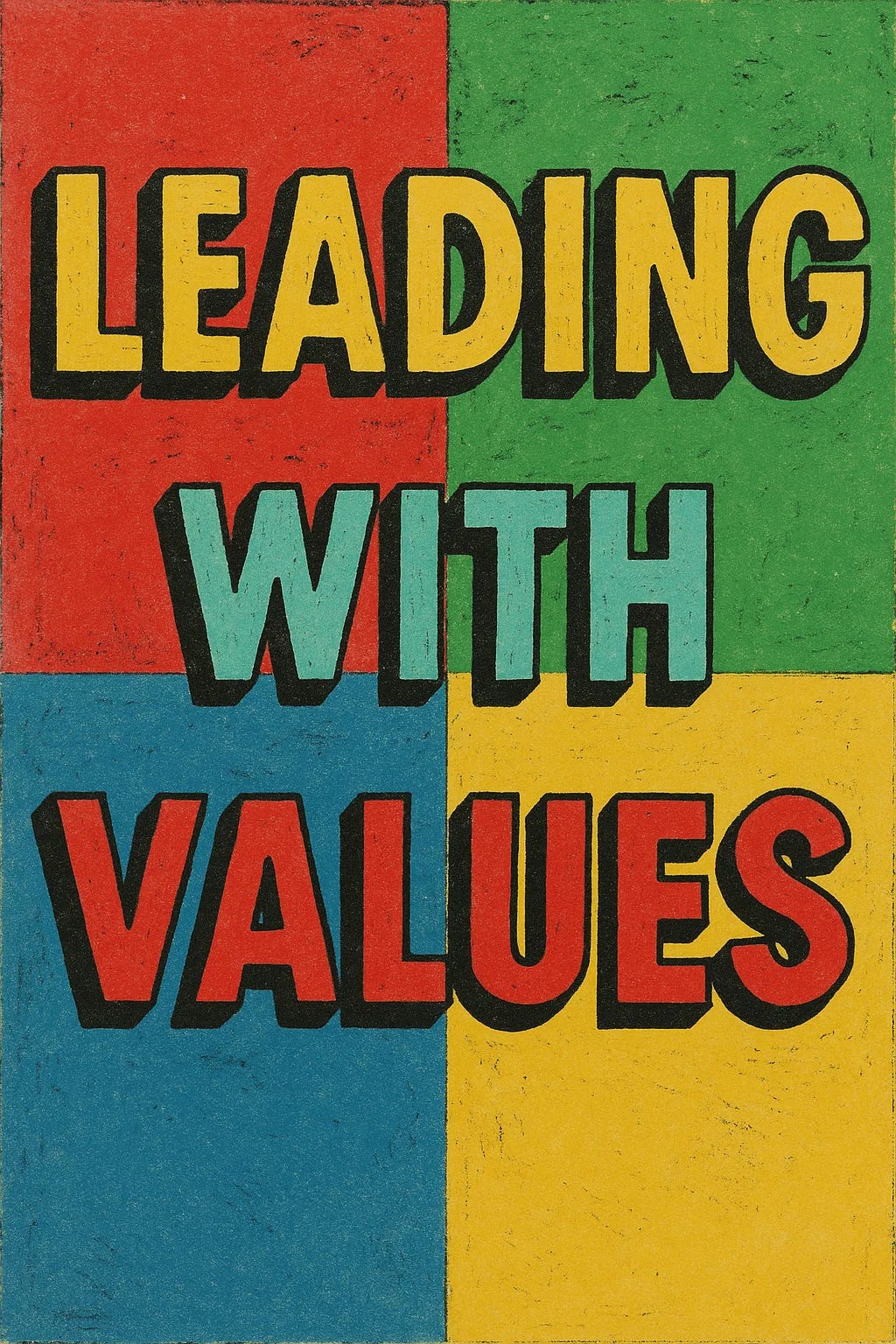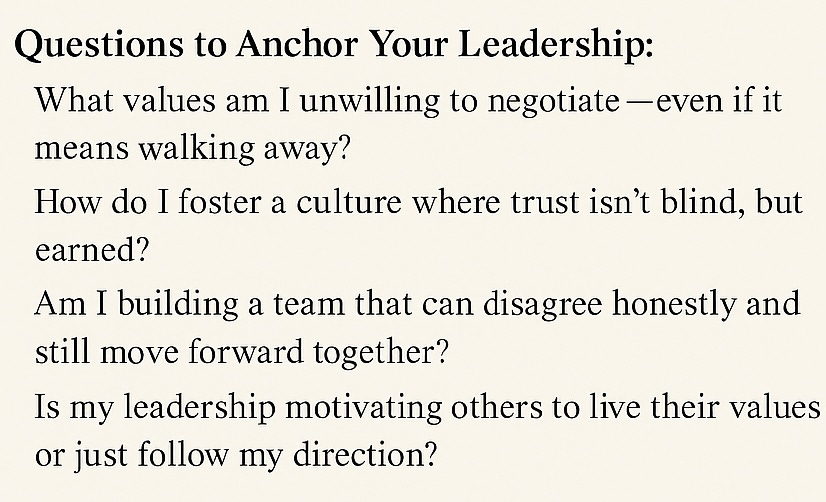Living and Leading by Values in a Shifting Culture
Recently, a Gen Z founder asked me two questions that cut through the noise and struck right at the heart of the work I’ve been doing:
“How do you cultivate connection quickly—especially among a diverse group—so people feel safe engaging in uncomfortable, even difficult conversations in service of a shared goal?”
“How do you identify and anchor an internal advocate inside the client organization, someone who ensures the culture work sticks long after the program ends?”
What struck me wasn’t just the sharpness of the questions—it was that I’m living them right now.
I’m in the middle of leading a high-stakes project where conflict, fractured trust, and competing power dynamics are all in play. There’s a shared goal, but getting there requires surfacing hard truths, healing rifts, and deciding whether moving forward is even possible without compromising core values.
This isn’t just theory. It’s real-time application—a kind of live tutorial in leadership, alignment, and integrity. And the more AI and automation take over the what of work, the more we’re left with the how and who—the human elements.
This is where culture lives. This is where values are tested.
1. “Where is character? Where is virtue?”
We live in a time where competency is often valued above character. But as automation and AI handle more tasks, what remains is us—the humans behind the work. In the end, it’s not just what we do, but how we show up. Character will be the lasting currency.
2. “Do I have to trust those who betrayed us?”
No, you don’t. Forgiveness is not the same as reconciliation. Trust, once broken, needs to be earned—not gifted in the name of progress. You’re not off for feeling hesitant. In fact, upholding your values is leadership.
3. “How do I move forward in conflict?”
Conflict resolution isn't about pleasing everyone. It’s about creating space where voices are heard, values are clarified, and alignment is real—even if the outcome means parting ways. That, too, is resolution.
What You Might Say to Your Team:
“We’re in a moment where we can either push forward at the cost of our values—or pause, reflect, and choose a path that aligns with who we are. That won’t always be the fastest path ‘up,’ but it will be the one we can walk with integrity.
I believe in building with people, not just through people. And I want to know: what values do you live by? Where do those values show up in our work, and where do they feel compromised? Because culture isn’t something we write in a deck. It’s how we show up when things get hard.”
Questions to Anchor Your Leadership:
What values am I unwilling to negotiate—even if it means walking away?
How do I foster a culture where trust isn’t blind, but earned?
Am I building a team that can disagree honestly and still move forward together?
Is my leadership motivating others to live their values—or just follow my direction?
To Motivate Through Values:
You don’t motivate by pretending everything’s fine—you motivate by inviting your team into the truth. Share your own moments of doubt, of conflict, of realignment. Then ask them to meet you there.
How would you answer these questions? I’ll share my answers to provoke thought and conversation. Our world doesn’t run on virtue nor value character. The richest people monetarily haven’t been rewarded with money due to virtue. That’s where “happiness is success” comes from. And happiness is from living according to virtue. Research increasingly validates what religions teach us in ways of life that bring true prosperity.
Am I wrong to answer this way? What does the “culture talk” of live out your values mean anyway?
1. What are ways you've cultivated connections amongst a diverse group quickly so that they feel comfortable engaging in new, uncomfortable, and sometimes difficult conversations -- all so they can accomplish a shared goal?
Become really good at listening ensuring everyone is heard emulating this as a cultural norm. Nip incivility in the bud as soon as you noticed it specifying tone, body language and words used; gently pulling the person aside addressing it privately. Also address the improvement and effort as soon as you noticed it privately. People will then take notice that you mean what you say about inclusion and civility laying groundwork for respect of diversity. Don’t engage or allow gossip in any form. Encourage people to share their first hand knowledge and experiences and don’t be afraid to redirect conversations to set the social norm.
2. How do you identify and solidify an "internal advocate" within the client company to ensure the culture shifts are integrated and maintained post-program implementation?
Train this candidate with continuous learning explaining lifelong learning as a value and sign of emotional intelligence. Watch them closely for consistency, even their personal social media. Is what they are saying and doing professionally and personally aligning with your culture? Are they embodying company values personally and professionally? Do they not only tolerate dissent, but give space to it respectfully? Tweets speak loudly! Hire for virtue and character.



